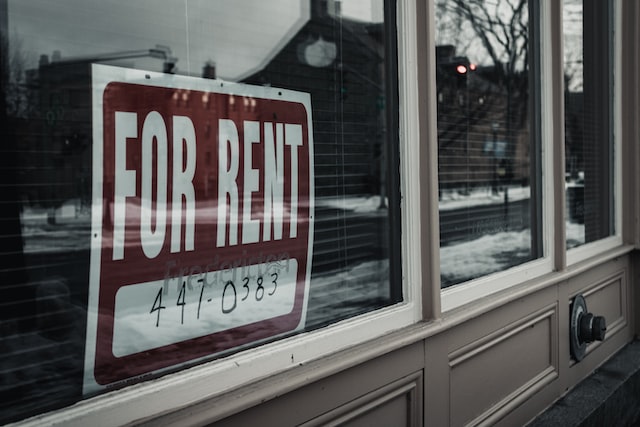Top 5 Tips for First-Time Renters in Boston
Fast-paced, competitive, and a bit stressful. All these words can describe renting your first apartment in Boston. With listings disappearing almost as quickly as they appear, it's easy to feel lost in the chaos. But don't worry; with the right plan, you can turn this challenge into an opportunity.
So how do you make sure you don't miss out on a great place? The key is knowing where to focus, and we'tre here to help you with that! And after you read these tips, a great next step is to explore Locanto and you'tre sure to rent an apartment in Boston in no time. The user-friendly interface allows you to quickly filter listings based on your budget, preferred location, and specific amenities you want. You can see only the options that fit your needs, saving you time in your search.
Research Boston Neighborhoods Thoroughly
Finding the right neighborhood for your lifestyle is the first thing on our list. Areas like Beacon Hill, South Boston, and Mission Hill each offer something different in terms of amenities and atmosphere. Be straight about what you want: a lively area with nightlife or a quieter, more family-friendly neighborhood?
What about the daily routine? Being close to work, schools or public transportation can make a big difference. If you need specific things, like pet-friendly apartments or certain amenities, be upfront about it from the start.
Real estate agents can also be really helpful, offering advice on lesser-known neighborhoods and showing you listings that might not be available online. Talking to locals is a great way to get a feel for a neighborhood, too. Their experiences can often point you to hidden gems you wouldn't otherwise find.

Set a Realistic Budget
Before you start looking for apartments, it's important to figure out how much you can realistically spend each month. A common guideline is to keep your rent at about 30% of your monthly income, but you also need to think about other costs. Expenses like utilities, internet, groceries, and extra fees for things like parking or pets can pile up fast. These added costs can significantly affect what you can actually afford, so it's good to plan for them upfront.
Don't forget about the initial payments required when renting an apartment. In Boston, many landlords will ask for the first and last month's rent, a security deposit, and sometimes a broker's fee if you'tre working with an agent. These upfront payments can be a hefty amount, so it's essential to save enough to cover them before signing a lease. You should also plan for potential moving costs, like hiring movers or renting a truck, which could add to your total expenses.
Understand the Rental Market
Boston's rental market has a range of options, from fancy apartments to affordable student housing. But because it's so competitive and there aren't many available units, it's important to be on top of your search. Taking the initiative can greatly improve your chances of finding the right place for you.
When you find an apartment that fits your budget and preferences, it's essential to act fast. In a city like Boston, where demand is high, apartments with popular features' such as pet-friendly policies, in-unit laundry, or unique layouts' tend to get rented out quickly. The sooner you express interest and communicate your needs, the better your chances of locking in the perfect spot before someone else does.
Also, timing is everything. The rental market in Boston can shift depending on the season, and it's especially competitive during late summer, when students and new residents are searching for places to move into by September. Knowing these seasonal trends can give you an edge, allowing you to plan ahead and avoid the rush. Searching during quieter times of the year might even give you more options and a bit of negotiating power with landlords.

Inspect Apartments Carefully
Pay attention to what you see.
First, check for any signs of damage, like water stains on the walls or ceiling. These stains might mean there are leaks, which could lead to bigger problems later. While you're at it, keep an eye out for mold or mildew, especially in wet areas like the kitchen and bathroom. If you find any mold, ask the landlord how they plan to handle it, as it can be harmful to your health.
Don't be afraid to ask questions about repairs, too. If the landlord mentions any fixes that have been done in the past, find out what exactly was repaired and if there are any ongoing issues that still need attention. This information can help you understand the overall condition of the apartment and whether it will be a comfortable place for you to live.
Security is another crucial aspect to consider. Take a moment to check the locks on all the doors and windows to ensure they work properly and provide good security. It's also wise to ask the landlord about additional safety measures. For example, are there security cameras in the building, or is there a doorman to help keep the property secure? Knowing these details can give you peace of
When you get a lease, it's important to dive into the details and understand what you're signing up for. Here's a breakdown: Renting an apartment in Boston can be like trying to find a needle in a haystack, but if you follow these tips, you will find the place of your dreams. Be proactive, follow your gut, and don't be afraid to ask for assistance. Before you know it, you'll be settling into a place that truly feels like yours.Be Aware of Lease Terms

The Key to Successful Renting